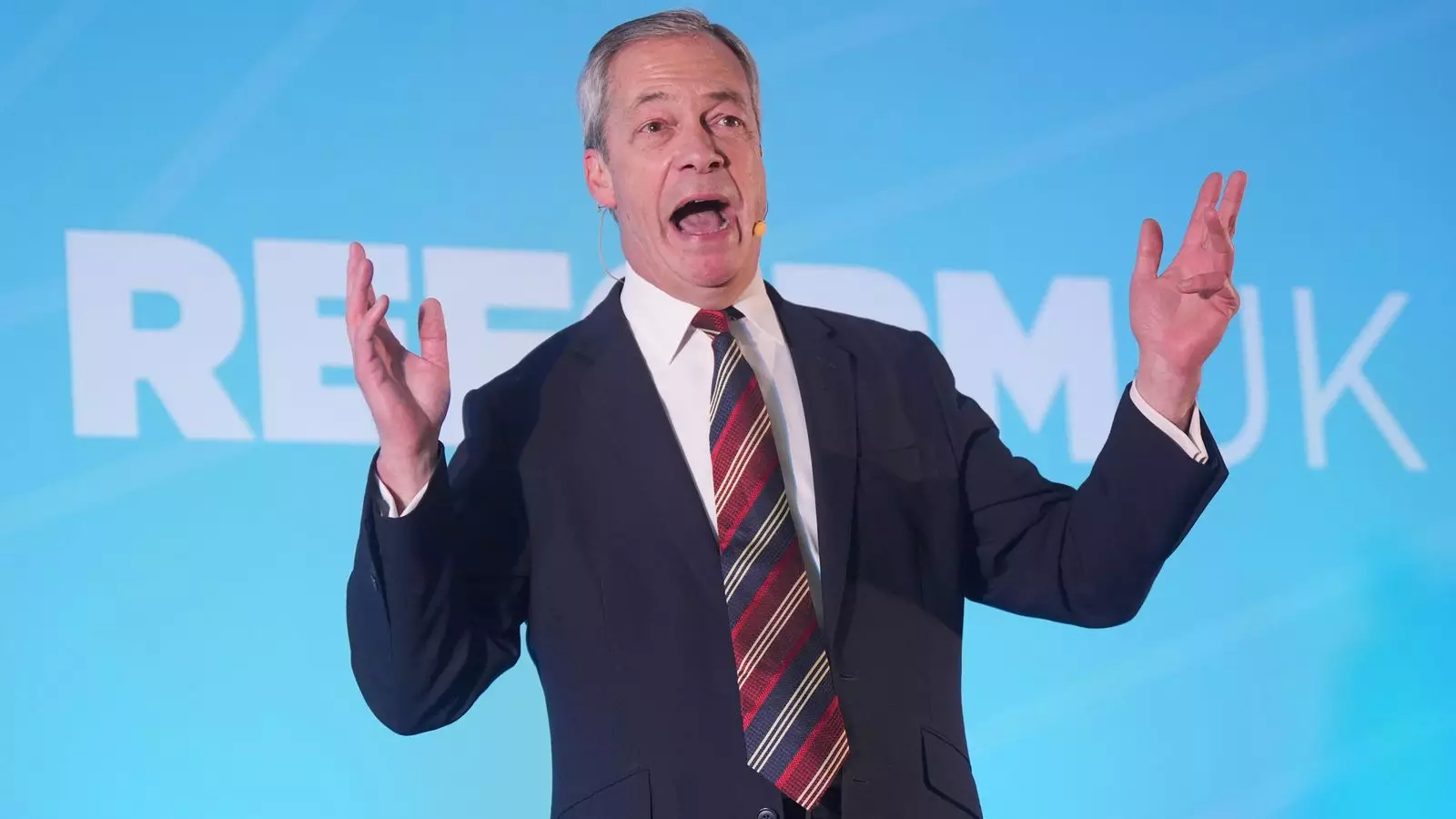In the volatile arena of contemporary politics, public figures often find themselves navigating a minefield of personal opinions and shifting alliances. The recent exchange between Nigel Farage, a prominent figure in British politics, and Elon Musk, the billionaire tech mogul, encapsulates this dynamic. With Farage defending his leadership of the Reform Party after Musk’s critical remarks, the incident highlights how personal relationships intersect with political aspirations and public discourse.
Nigel Farage, speaking to Sky News, made clear his stance against what he perceives as external pressures regarding his leadership role within the Reform Party. After Musk boldly stated that Farage “doesn’t have what it takes” to lead, one would expect such condemnation to shake the foundations of any political career. Yet Farage stands resolute, demonstrating a confidence that many leaders might lack in similar situations. His assertion that he “can’t be pushed or bullied” not only expresses his determination but also serves as a reminder of the strong personalities that often clash within political circles.
The relationship between Musk and Farage brings forth an interesting juxtaposition: the billionaire, known for his unfiltered opinions and commanding presence in the tech industry, versus Farage, a seasoned political veteran. Farage’s insistence that they remain friends reflects a nuanced understanding of alliance-building, even with someone who openly criticizes his political capabilities. This speaks volumes about how relationships can be maintained even amidst professional disagreements, a skill that is essential for longevity in politics.
At the heart of the discord between the two figures lies a fundamental disagreement over political ideology, particularly concerning far-right activist Tommy Robinson. Farage’s refusal to endorse Musk’s framing of Robinson as a “political prisoner” demonstrates a commitment to his own political values over blind allegiance to a high-profile supporter. Despite acknowledging Musk’s positive contributions to Reform UK in the past, Farage emphasizes a critical boundary: Robinson and his supporters do not belong in the Reform party.
This emphasis on ideology is essential, particularly in a time when political parties often struggle with internal schisms. Farage made it clear that he has no interest in aligning with individuals associated with extremist movements, drawing a line in the sand that could resonate with moderate supporters who fear the radicalization of political discourse. His loyalty to the party’s foundational principles, despite potential financial backing from Musk, showcases the complexities of managing relationships in politics while staying true to one’s ideological standpoints.
The Broader Picture: Democracy and Local Governance
Farage’s interview did not solely focus on his tensions with Musk; he extended his critique to the Labour government’s proposed devolution plans, which could disrupt local elections. He painted these changes as a “denial of democracy,” arguing that the government seeks to manipulate electoral processes to maintain power amid fears of losing local authority to opposition parties. His claims resonate with democratic principles, suggesting that the integrity of elections should not be compromised for political expediency.
The potential postponement of elections in favor of structural reorganizations could lead to significant ramifications for local governance. Farage characterized the situation as dictatorial, positioning himself as a defender of democratic values against what he perceives as governmental overreach. This rhetoric not only serves to rally his supporters but also positions Reform UK in opposition to the status quo, appealing to voters who are disillusioned by traditional political machinations.
In discussing the hesitance among some Reform members to speak publicly about their support, Farage dismissed the notion of “toxicity” associated with the party. Instead, he highlighted what he perceives as an “institutional bias” against right-leaning perspectives in the media landscape. This self-perception as a victim of bias complicates Farage’s political stance, showing how leaders may sometimes struggle to reconcile public opinion with their party’s identity.
The challenges of addressing public perceptions while maintaining a coherent party platform illustrate the balancing act that contemporary leaders must excel in. Farage’s critique of media bias, if strategically leveraged, could assist in solidifying party loyalty among members who feel disenfranchised.
The clash between Nigel Farage and Elon Musk serves as more than just a headline; it is a reflection of the ongoing ideological battles within politics today. Farage’s defiance in the face of criticism and his commitment to his principles offers insight into the character of political leadership. As alliances form and fracture, understanding the interplay of personal beliefs and political maneuvering will shape the future landscape of party politics in the UK and beyond. The capacity to maintain personal relationships while navigating ideological divides may well determine the success of political figures like Farage as they face increasing scrutiny in an ever-evolving political environment.


Leave a Reply